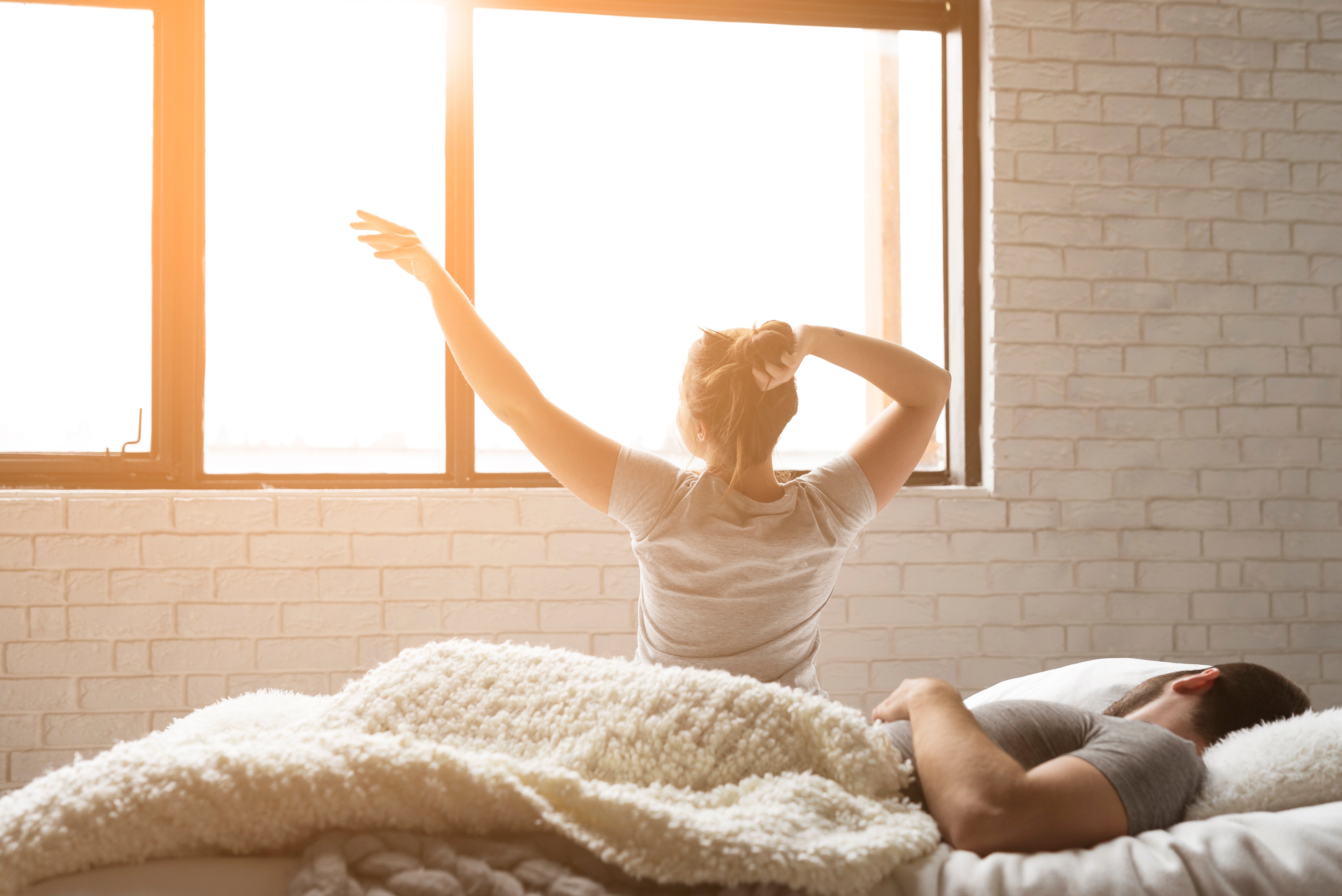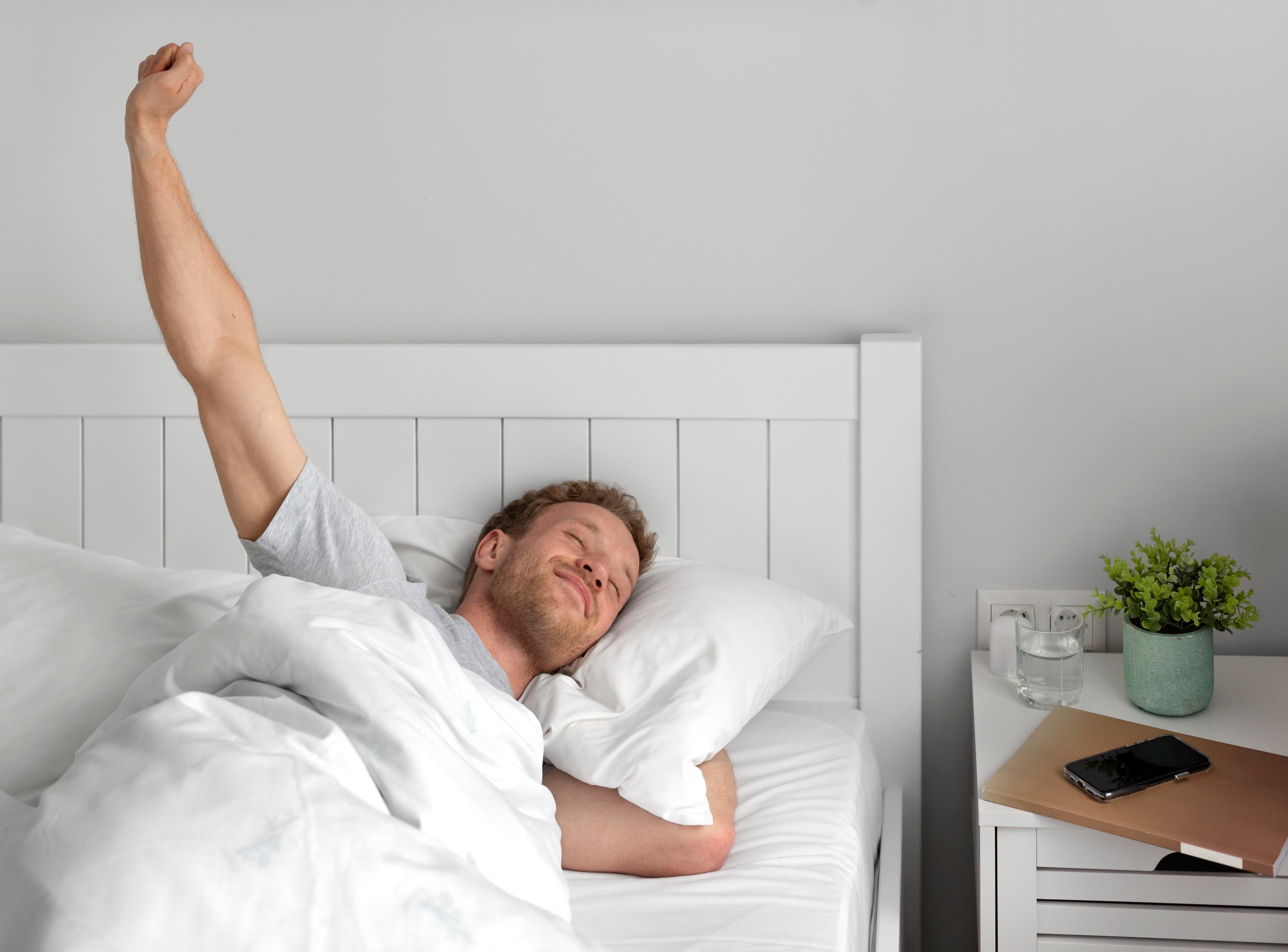
36 Scientifically Proven Sleep Tips for a Better Night's Sleep
36 Scientifically Proven Sleep Tips for a Better Night's Sleep
Deep, restorative sleep isn't a luxury; it's essential for a healthy and happy life. Yet, for many, sleeping well is a daily challenge. That's why we've compiled 36 scientifically proven sleep tips that really work. You don't have to implement everything at once: choose the tips that best suit your lifestyle and build a perfect sleep routine step by step.
1. Set a 'go-to-bed' alarm
Set an alarm to go to bed, just like you do to wake up. Sleep deprivation often occurs because we go to bed too late. A reminder helps you relax in time and develop a healthy bedtime routine.
2. Stop snoozing
Snoozing disrupts your sleep cycle and actually makes you more tired. Get up immediately at the first alarm to start your day feeling more energized.
3. Avoid alcohol before bedtime
Alcohol disrupts your REM sleep, causes night sweats, and increases the risk of snoring. Avoid drinking alcohol for at least four hours before bedtime.
4. Wear socks in bed
Warm feet help you fall asleep faster. Socks improve your circulation and reduce night sweats.
5. Keep your bedroom completely dark
Darkness stimulates melatonin production. Use blackout curtains, a sleep mask, or avoid artificial light to sleep better.
6. Provide a cool sleeping environment
The ideal bedroom temperature is around 18°C. Use a fan, air conditioning, or open windows for optimal cooling.
7. Turn off screens an hour before bedtime
Blue light from phones and TVs inhibits melatonin production. Put your devices away and choose a calming activity.
8. Stop drinking caffeine after noon
Caffeine stays active in your body for up to 6 hours. Therefore, don't drink coffee, cola, or energy drinks after 2:00 PM.
9. Exercise regularly
Exercise reduces stress, improves your mood, and helps you fall asleep faster. Exercise for at least 30 minutes daily.
10. Don't exercise right before bedtime
Don't do intense workouts too close to your sleep time. Your body needs time to recover.
11. Eat light in the evening
Heavy or fatty meals right before bed can disrupt your digestion. Opt for a light, protein-rich snack if needed.
12. Choose calming colors in your bedroom
Colors like sage green and blue-green create tranquility and help you relax. Avoid bright or energetic hues.
13. Don't worry about sleep
Stressing about not being able to sleep is counterproductive. Accept your insomnia and focus on relaxation, not on the clock.
14. Minimize noise
Use earplugs or a white noise machine to block out distracting sounds. Also, avoid ticking clocks and other distractions.
15. Use your bedroom only for sleeping
Avoid work, television, and phones in bed. This trains your brain to associate your bedroom with rest.
16. Keep your pet out of the bedroom
While friendly, dogs and cats often disrupt your sleep. Limit their access to the bedroom for a better night's sleep.
17. Choose the right mattress
A good mattress supports your spine and posture. Combine it with breathable bedding for maximum comfort.
18. Take a short power nap
A 20-30 minute (or 90 minute) nap in the afternoon can improve your energy and alertness without disrupting your sleep.
19. Use separate blankets in a shared bed
Separate blankets or a duvet without a cover prevent pulling on the blanket and ensure a more undisturbed sleep.
20. Stick to a regular sleep schedule
Get up around the same time every day – even on weekends. This strengthens your internal biological clock.
21. Visualize a calming scene
Before you go to sleep, consciously imagine a relaxing situation, like a walk on the beach or in the woods. This helps your brain calm down.
22. Do yoga before bed
Gentle yoga like Hatha relaxes your nervous system and muscles, helping you fall asleep faster.
23. Breathe deeply and consciously
Use breathing techniques like 4-7-8 or box breathing to slow your heart rate and release stress.
24. Try aromatherapy
Lavender and chamomile are proven scents that promote sleep. Use a diffuser or spritz your pillow.
25. Take a warm bath
A warm bath relaxes your muscles, lowers your blood pressure, and increases your melatonin levels. Take it 1-2 hours before bed.
26. Practice progressive muscle relaxation
Systematically tense and relax muscle groups. This proven technique reduces tension and promotes deeper sleep.
27. Use your bed only for sleeping
Limit your bed to sleep and intimacy. This way, your brain learns that going to bed means sleep.
28. Write down your worries
Write down what's bothering you before bed. This way, you'll let go of your thoughts and start your night more peacefully.
29. Get out of bed if you can't sleep
Are you awake for more than 20 minutes? Get up, do something relaxing, and then try again.
30. Seek direct sunlight in the morning
Morning light regulates your internal clock and promotes melatonin production in the evening.
31. Reduce or treat snoring
Snoring can disrupt sleep. Avoid alcohol, sleep on your side, or use an anti-snoring aid.
32. Get tested for sleep apnea
Fatigue, loud snoring, or shortness of breath can indicate sleep apnea. Treatment improves your health and sleep.
33. Invest in a good pillow
A pillow that suits your sleeping position prevents neck problems and promotes a correct sleeping position.
34. Drink less in the evening
Avoid nighttime toilet visits by drinking only a little water after dinner.
35. Stop smoking
Nicotine disrupts your sleep cycle and causes restlessness. Quitting smoking significantly improves the quality of your sleep.
36. Consider sleep therapy
Chronic insomnia? Sleep therapy or cognitive behavioral therapy may offer relief. Ask your doctor about the options.


